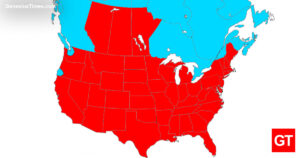BREAKING: Tariff War Sends Prices of Chinese Rubber Dog Sh*t Soaring

Hong Kong – In a bizarre twist to the ongoing U.S.-China tariff war, the cost of flights carrying rubber dog sh*t out of Hong Kong has tripled, leaving pranksters, pet stores, and novelty shops reeling. The once-affordable gag gift, a staple of juvenile humor and fake-out dog park antics, has become the latest casualty of escalating trade tensions, with prices skyrocketing from a modest $2 per turd to a jaw-dropping $6 in just six months.
“It’s a crappy situation,” groaned Eddie Lau, a Hong Kong-based exporter who’s been shipping rubber dog sht to the U.S. for over a decade. “We used to send these out by the crate—cheap, easy, everyone’s laughing. Now, with the tariffs, shipping costs are through the roof. I’m losing my sht over here, and not the rubber kind!”
The tariff war, which began in 2018 under the Trump administration and has continued to fester, has slapped hefty duties on a wide range of Chinese goods, including novelty items like rubber dog sh*t. Classified under the U.S. Harmonized Tariff Schedule as “miscellaneous plastic articles for amusement,” the faux feces now face a 25% import tax, compounded by rising air freight costs as airlines struggle with fuel prices and reduced cargo capacity. The result? A perfect storm of economic pressure on the world’s most beloved fake poop.
American retailers are feeling the pinch. “I used to sell these for $3.99, and they’d fly off the shelves,” said Tina Reynolds, owner of Gags ‘n’ Giggles, a novelty store in Toledo, Ohio. “Now I have to charge $9.99 just to break even. My customers are pissed—they say it’s not worth the price for a prank. One guy told me he’d rather use the real thing for free!”
The price surge has also sparked a black market for rubber dog sht, with smugglers reportedly stuffing the faux turds into suitcases to avoid tariffs. U.S. Customs Service agents at LAX recently seized a shipment of 500 pieces hidden inside a crate labeled “educational toys,” prompting one officer to quip, “I guess you learn something new every day.” The bust has only driven prices higher, with some online marketplaces listing “vintage” Hong Kong rubber dog sht for as much as $15 a piece.
Economists are baffled by the ripple effects. “This is a textbook example of how tariffs distort markets,” said Dr. Alan Cheung, a trade expert at the University of Hong Kong. “Rubber dog sht isn’t just a product—it’s a cultural artifact. You’re telling me a kid can’t afford to prank their neighbor because of geopolitics? That’s the real shtshow here.”
Meanwhile, in Hong Kong, manufacturers are scrambling to pivot. Some are experimenting with tariff-free alternatives, like rubber cat vomit, but the market isn’t biting. “It’s just not the same,” sighed Lau, staring at a pile of unsold feline puke. “People want the classic. They want the sht.” Others are lobbying for a tariff exemption, arguing that rubber dog sht should be classified as an “essential cultural good,” though the proposal has been met with laughter in Washington.
As the tariff war drags on, American consumers are left to decide: pay the premium for a laugh, or let the prank die. One thing’s for sure—Hong Kong’s rubber dog sh*t industry is in deep doo-doo, and the stench of trade politics is only getting worse.
![]()




